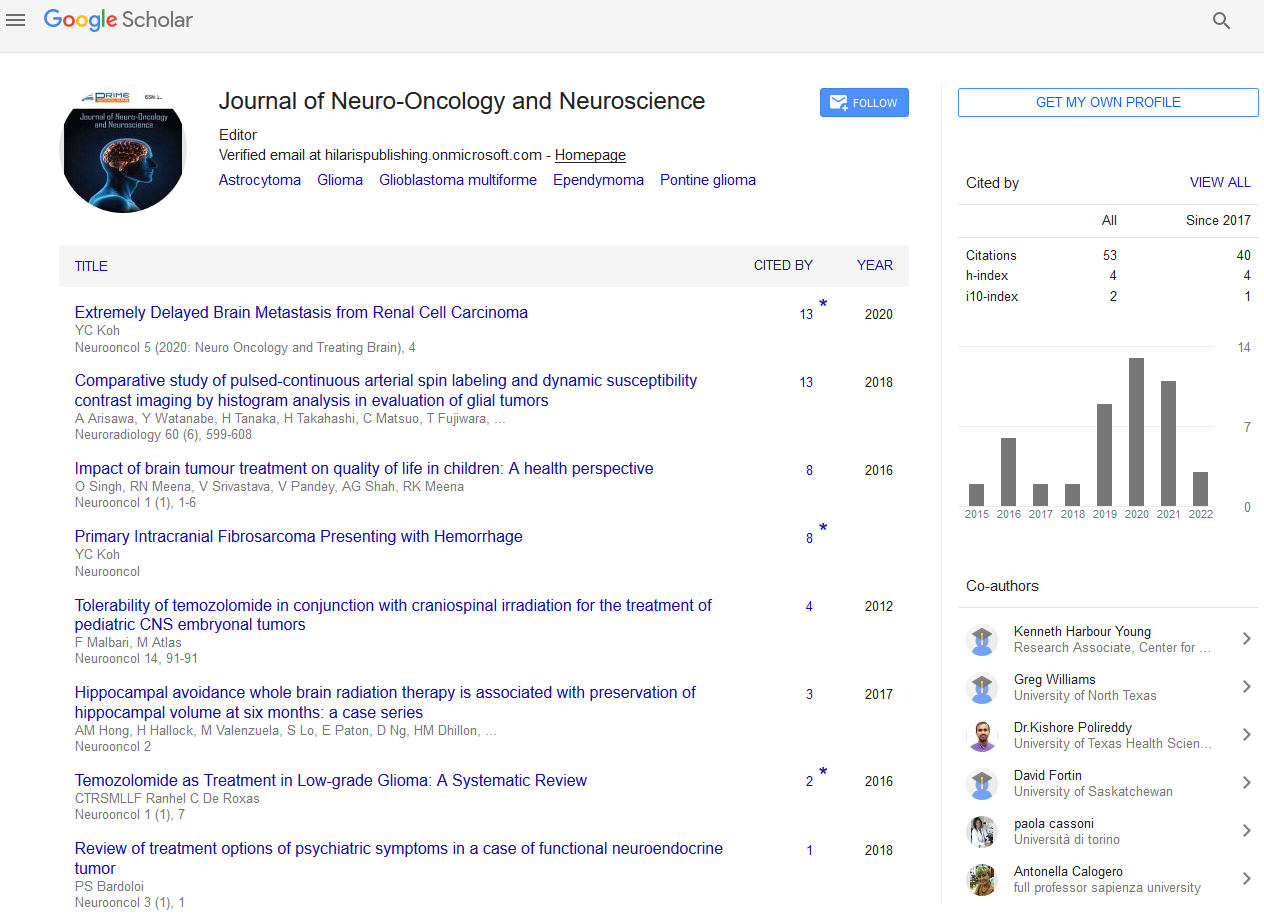Commentary - (2024) Volume 9, Issue 1
Colorectal Cancer: Understanding the Disease and Promoting Prevention
Lin Yi*
Department of Environmental Sciences, Sichuan University, Brazil
*Correspondence:
Lin Yi,
Department of Environmental Sciences, Sichuan University,
Brazil,
Email:
Received: 28-Feb-2024, Manuscript No. IPJNO-24-20026;
Editor assigned: 01-Mar-2024, Pre QC No. IPJNO-24-20026 (PQ);
Reviewed: 15-Mar-2024, QC No. IPJNO-24-20026;
Revised: 20-Feb-2024, Manuscript No. IPJNO-24-20026 (R);
Published:
27-Mar-2024, DOI: 10.21767/2572-0376.24.9.1.03
Introduction
Colorectal cancer, also known as bowel cancer or colon
cancer, is a common and potentially life-threatening disease
that affects the colon or rectum. In this article, we delve into
the intricacies of colorectal cancer, including its causes, risk
factors, symptoms, screening methods, treatment options, and
the importance of early detection and prevention strategies.
Colorectal cancer develops when abnormal cells in the lining
of the colon or rectum grow and divide uncontrollably, forming
tumors. Over time, these tumors can invade nearby tissues
and spread to the exact cause of colorectal cancer is not fully
understood, but several factors may increase a person’s risk of
developing the disease: Colorectal cancer is more common in
older adults, with the majority of cases diagnosed in individuals
aged 50 and older. A family history of colorectal cancer or
certain hereditary conditions, such as Familial Adenomatous
Polyposis (FAP) or Lynch Syndrome, can increase the risk of
developing the disease. Individuals with a personal history of
colorectal polyps (abnormal growths) or inflammatory bowel
disease (such as Crohn’s disease or ulcerative colitis) are at
higher risk of developing colorectal cancer.
Description
Colorectal cancer may not cause symptoms in its early stages,
which is why regular screening is essential for early detection
includes blood in the stool or rectal bleeding, abdominal pain,
cramping, or discomfort, unexplained weight loss, fatigue
or weakness, anemia (low red blood cell count). Diagnosing
colorectal cancer typically involves a combination of screening
tests and diagnostic procedures of colonoscopy is the gold
standard for colorectal cancer screening and involves the
insertion of a flexible tube with a camera (colonoscope) into
the rectum and colon to examine the lining for abnormalities
and polyps. During the procedure, polyps can be removed and
biopsied if necessary. This non-invasive test detects hidden
(occult) blood in the stool, which may indicate the presence
of colorectal cancer or precancerous polyps. It is often used
as a screening tool in combination with other tests. Imaging
tests such as Computed Tomography (CT) scans, Magnetic
Resonance Imaging (MRI), or Positron Emission Tomography
(PET) scans may be performed to assess the extent of the
cancer and detect any metastases. The treatment approach
for colorectal cancer depends on several factors, including the
stage and location of the cancer, the patient’s overall health,
and their preferences. Treatment options may include surgical
resection of the tumor and surrounding tissues is the primary
treatment for localized colorectal cancer.
Conclusion
Preventing colorectal cancer and detecting it early are crucial
for improving outcomes and reducing mortality. Several
strategies can help lower the risk of developing colorectal
cancer. Regular colorectal cancer screening, starting at age
50 for average-risk individuals, can help detect precancerous
polyps or early-stage cancer when treatment is most effective.
Screening options include colonoscopy, Fecal Occult Blood Tests
(FOBT), Fecal Immunochemical Tests (FIT), and stool DNA tests.
Adopting a healthy lifestyle, including maintaining a balanced
diet rich in fruits, vegetables, and whole grains, limiting red
and processed meats, staying physically active, maintaining a
healthy weight can help reduce the risk of colorectal cancer.
Individuals with a family history of colorectal cancer or certain
hereditary conditions may benefit from genetic counseling and
testing to assess their risk and inform personalized screening
and prevention strategies. Colorectal cancer is a significant
public health issue with potentially serious consequences if left
untreated.
Acknowledgement
None.
Conflict Of Interest
The author’s declared that they have no conflict of interest.
Citation: Yi L (2024) Colorectal Cancer: Understanding the Disease and Promoting Prevention. Neurooncol. 9:03.
Copyright: ©2024 Yi L. This is an open-access article distributed under the terms of the Creative Commons Attribution License, which permits unrestricted use, distribution, and reproduction in any medium, provided the original author and source are credited.

